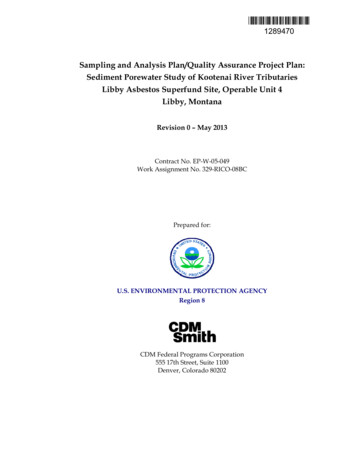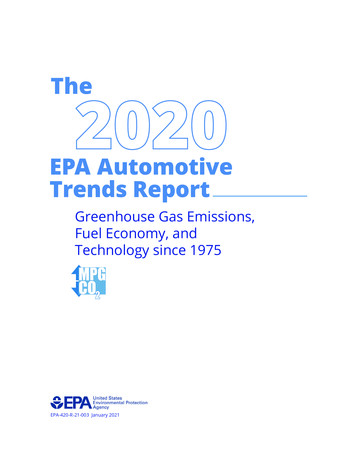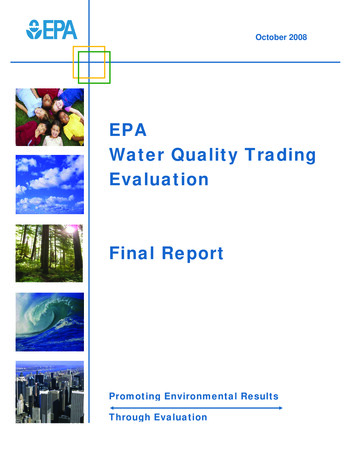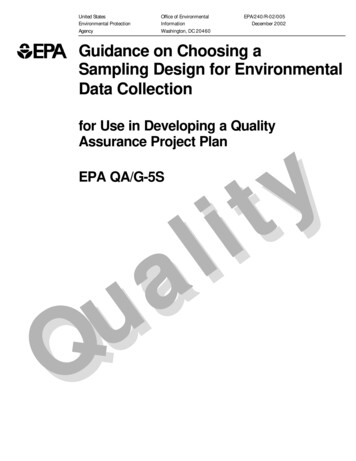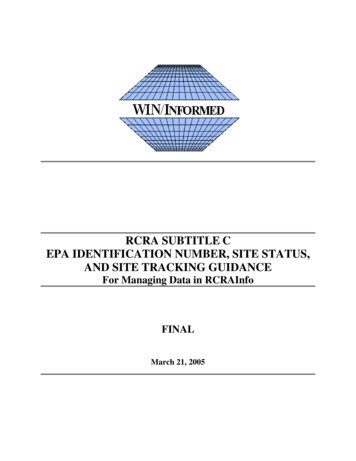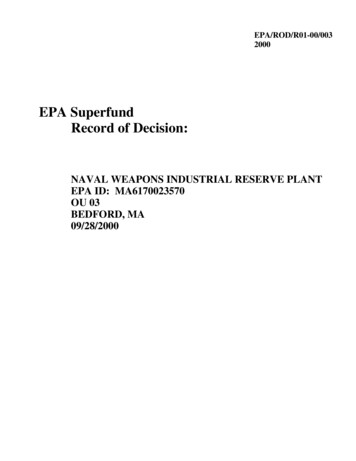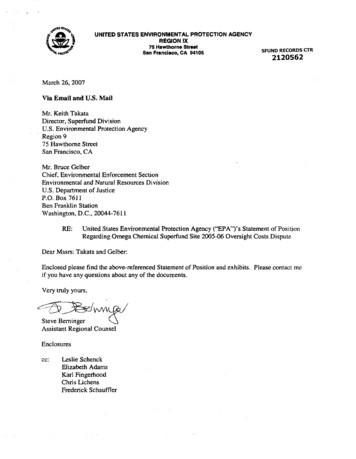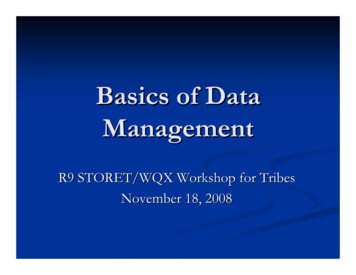
Transcription
Basics of DataManagementR9 STORET/WQX Workshop for TribesNovember 18, 2008
Data Management The process of organizing, storing, retrievingand maintaining the data you collectHaving a data storage, management, andretrieval system is essential for every monitoringprogram (Volunteer WQ Monitoring factsheet)
Importance An important link between effective monitoringefforts and informed data analysis for assessingwater quality is DATA MANAGEMENTAn important link between doing water qualityrestoration activities and determining theireffectiveness is monitoring and more DATAMANAGEMENT
The Bigger PictureProtecting TraditionalTribal Lifeways(water quality standardsand assessment, etc. )Reports to EPAInfo to community &decision makersShare with othersGood translation ofdata to infoEasy access to dataEfficient/Quality data entryEfficient/Quality data collectionQualityassurance plansWhy and whatto assess
10 Elements of a Tribal onitoring StrategyMonitoring ObjectivesMonitoring DesignCore IndicatorsQuality AssuranceData ManagementData Analysis/AssessmentReportingProgrammatic EvaluationGeneral Support and Infrastructure
Data Management in ContextThe life of a sample begins hereField Sheets capture dataLabs generate dataNow what to do with all this data?
Essentials of data content What data do you have?Water Monitoring data consists of: Where sample/measurement was collectedWhen it was collectedWhat was collectedHow it was collectedWhy it was collectedWho collected itIt does not take a lot of information to create a gooddata set.
Some good questions to ask What do you want to do with the data? What kinds of reports do you need? Share it with others? Let multiple staff members access andchange it?Perform QA/QC?Evaluate and assess for water quality condition?Help prioritize your monitoring efforts?Graphs? Bar Charts? Trends?What resources do you have to manage your data? Set up costs and maintenance costs
First, make sense of what you haveOrganize data electronicallyUse the tools you’re familiar with: Access Excel Other higher-powereddatabase managementsystem (i.e. Oracle)Have a plan for growthNot only will your skill grow, butyour data volume will grow. Beprepared for it.Find out what’s already available
Tools MS Excel MS Access Spreadsheet software that tracks data in columns and rowsYou can perform calculations on data and show graphsA type of Relational DatabaseData is stored in tables that can be related to each other viacommon IDsData can be manipulated via QueriesData can be entered via Forms and retrieved via ReportsOther database management systems Oracle, SQL ServerData storage and retrieval is much more robustCan build custom applications to interact with the data
Data are valuable, plan for re-useElectronic data are more valuable than data in file cabinetsThe more data are re-used, the more valuable they becomeShared data are of even higher value Provide for better planning decisions Incentivize collaborative efforts Make the most use of the monitoring s beinginvested
A type of Relational Database Data is stored in tables that can be related to each other via common IDs Data can be manipulated via Queries Data can be entered via Forms and retrieved via Reports Other database management systemsOther database management systems Oracle,
